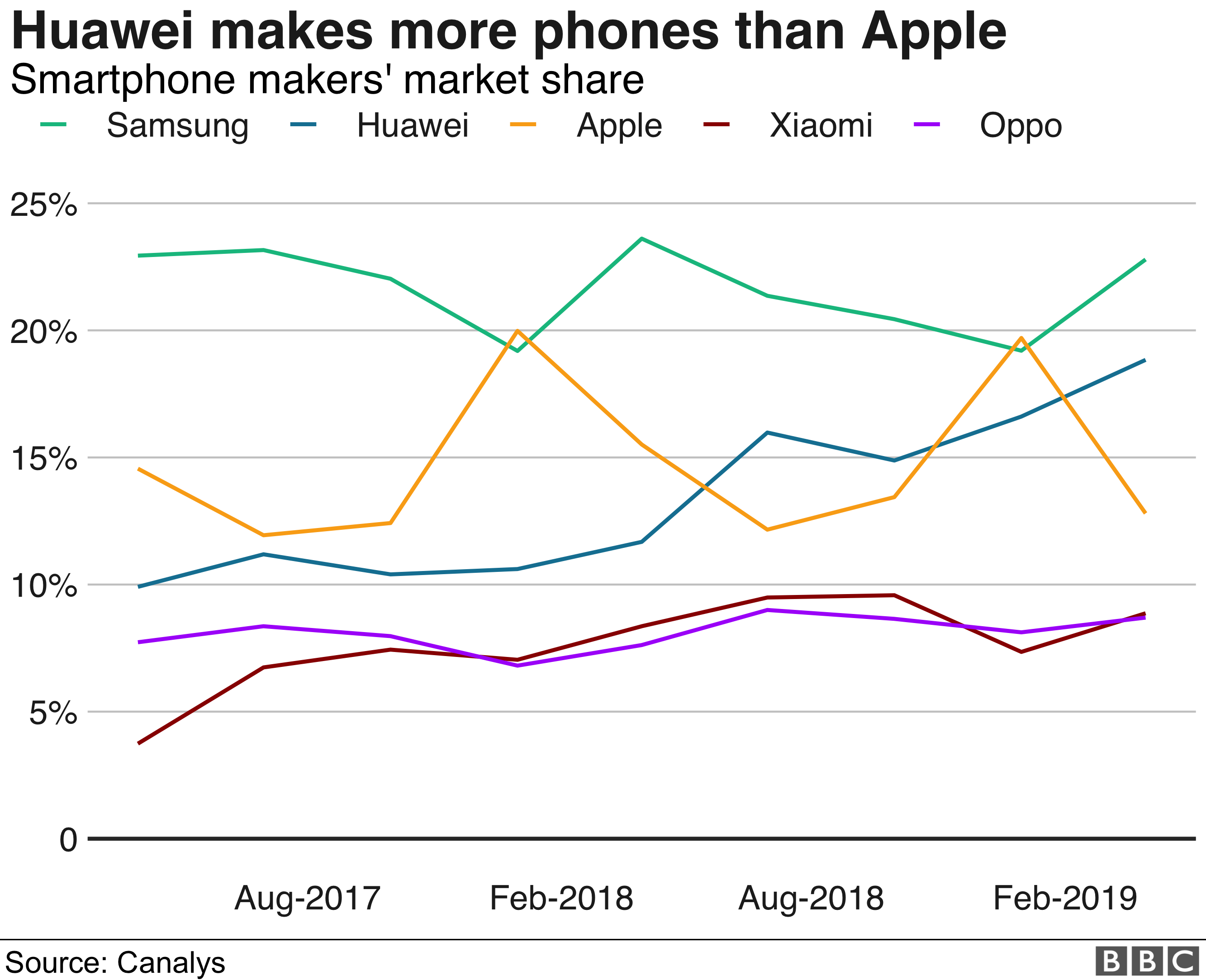
This article is more than
6 year old
Chen Wen also told the BBC that Beijing had already "witnessed some conscious moves" in that direction.
Last week, the US put Huawei on a list that curbs the ability of US firms to trade with it.
US officials blamed national security concerns over Huawei technology.
The UK is still reviewing its 5G telecoms policy and may allow Huawei to supply "non-core" 5G components, such as antenna masts.
Huawei is considered a world-leading provider of next-generation 5G technology, which will provide superfast mobile internet connections.
Speaking to the BBC's World at One programme, Ms Chen, who is the Chinese chargé d'affaires in London, said the UK economy would be damaged by the message any ban on Huawei sent out to international and Chinese companies.
"The message is not going to be very positive," she said.
"Is UK still open? Is UK still extending a welcoming arm to other Chinese investors?"

When asked how large the repercussions would be, the embassy official said: "It's hard to predict at the moment, but I think it's going to be quite substantial."
Ms Chen insisted that her government would never force a Chinese firm operating abroad to provide information to its intelligence agencies.
She went on to claim that there was a bit of "hysteria" in the United States about the rise of Chinese influence and the UK should make decisions based on its own national interest.
She called Huawei's investment in the UK "a vote of confidence in the UK economy".
Earlier this week, Cambridge-based chip designer ARM told its staff they must halt "all active contracts, support entitlements, and any pending engagements” with Huawei to comply with a recent US trade clampdown.
ARM's designs form the basis of most mobile device processors worldwide.
On the same day, EE confirmed that its range of 5G phones would not include Huawei models.
It followed a decision from Google to bar the smartphone maker from some updates to the Android operating system.